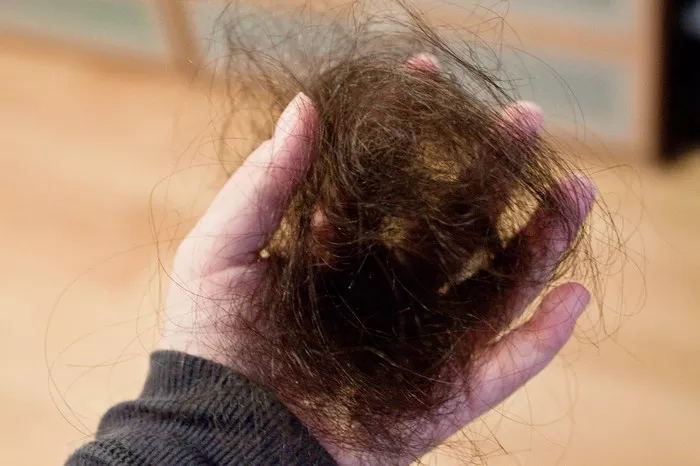Many individuals experience the distressing phenomenon of hair loss, seeking answers to the myriad of factors that may contribute to this issue. One common question that arises is, “Why does oil make my hair fall out?” While oil is often considered beneficial for hair, its excessive use or improper application can lead to unexpected consequences. This article aims to delve into the relationship between oil and hair loss, shedding light on the factors that may contribute to this concern.
The Natural Oils in Your Scalp:
Before exploring external factors, it’s essential to understand the role of natural oils produced by the scalp. Sebum, a waxy and oily substance, is secreted by the sebaceous glands in the scalp. This natural oil serves multiple purposes, including moisturizing the hair, preventing it from becoming dry and brittle. However, an excess of sebum production can lead to an oily scalp, causing various hair-related issues, including hair loss.
The Importance of Balance:
Like many aspects of health, balance is key when it comes to scalp oil. Too much oil can clog hair follicles, leading to inflammation and potential hair loss. On the other hand, insufficient oil production can result in dry and damaged hair. Striking the right balance is crucial for maintaining a healthy scalp and preventing excessive hair shedding.
Oil Overload:
Excessive use of hair oils, whether natural or commercial products, can overwhelm the scalp’s natural balance. Applying too much oil can lead to a buildup that clogs hair follicles, hindering healthy hair growth. Additionally, certain oils may be comedogenic, meaning they have a tendency to clog pores. This can further exacerbate the problem, potentially contributing to hair thinning and loss.
Choosing the Right Oils:
Not all oils are created equal, and some may be more suitable for specific hair types than others. Opting for non-comedogenic oils such as jojoba oil, argan oil, or coconut oil can help mitigate the risk of clogged pores. These oils have moisturizing properties without causing excessive buildup, promoting a healthier scalp environment.
Improper Application Techniques:
Beyond the choice of oil, the way it is applied also plays a crucial role. Applying oil directly to the scalp in excessive amounts can lead to issues. Instead, focus on distributing the oil evenly through the hair strands, concentrating on the tips rather than the roots. This prevents the scalp from becoming overly oily, reducing the risk of hair loss.
Scalp Conditions and Disorders:
Certain scalp conditions and disorders can also contribute to hair loss. Seborrheic dermatitis, for instance, is a common condition characterized by an overproduction of sebum. This excess oil can lead to redness, itching, and hair loss. Addressing underlying scalp conditions with the guidance of a healthcare professional is essential for maintaining a healthy head of hair.
Hair Care Habits:
In addition to oil application, other hair care habits can impact hair health. Frequent washing with harsh shampoos or using hot water can strip the scalp of its natural oils, prompting the sebaceous glands to produce more oil to compensate. This cycle can contribute to an oily scalp and potential hair loss. Opting for a gentle, sulfate-free shampoo and avoiding excessive heat can help maintain a healthier scalp environment.
Genetic and Hormonal Factors:
It’s important to recognize that genetics and hormonal factors also play a significant role in hair loss. Androgenetic alopecia, commonly known as male-pattern baldness or female-pattern baldness, is influenced by genetics and hormonal changes. While oil alone is not the sole cause of genetic hair loss, it can exacerbate the condition if not managed properly.
See Also: Can Vitamin D Boost Hair Growth: A Comprehensive Guide
Conclusion:
In the quest for luscious locks, it’s crucial to strike a balance between maintaining a healthy scalp and avoiding excessive oil application. Understanding the natural oils in the scalp, choosing the right oils, adopting proper application techniques, addressing scalp conditions, and cultivating good hair care habits are key components of a comprehensive approach to prevent oil-induced hair loss. By incorporating these practices into your hair care routine, you can promote a healthier scalp environment and reduce the risk of unwanted hair shedding. If concerns persist, consulting with a healthcare professional or a trichologist can provide personalized insights and guidance on maintaining optimal hair health.


